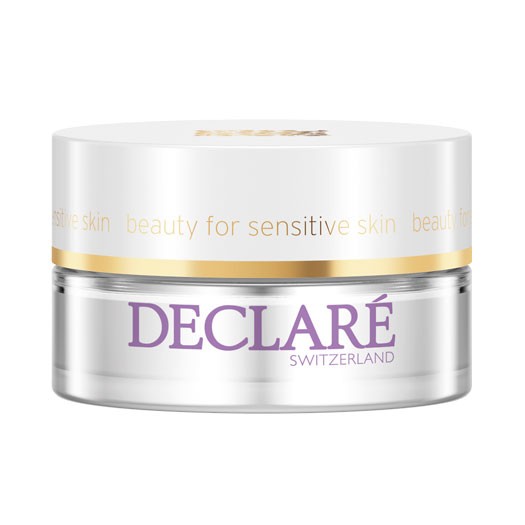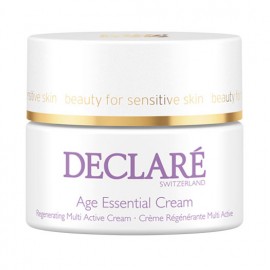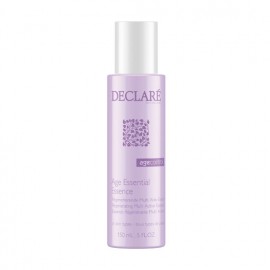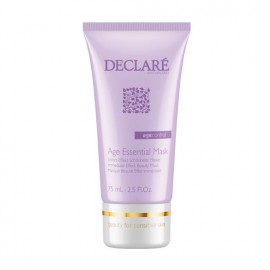
Age Essential Eye Cream
This intensive eye care supplies the mature skin of the eye area by vitalising the skin and reduces the appearance of lines and wrinkles, dark shadows around the eyes and puffiness for nourished, refined and smooth skin.
-
 Shipping $9.95 Australia wide (FREE over $180)
Shipping $9.95 Australia wide (FREE over $180)
-
 Delivery 3-7 business days
Delivery 3-7 business days
-
 Return 14 business days
Return 14 business days
-
 Security Payment (Credit & Debit Card or Paypal)
Security Payment (Credit & Debit Card or Paypal)
-
 INTERNATIONAL SHIPPING is 24.95$ in 14 business days
INTERNATIONAL SHIPPING is 24.95$ in 14 business days
Age Essential Eye Cream
Intensive eye care cream supplies the mature skin of your eye area with everything it needs to be beautiful. A combination of extract of peony with highly effective peptides and hyaluronic acid vitalises the skin and reduces the appearance of lines and wrinkles, dark shadows around the eyes and puffiness. For intensively nourished, refined and smooth skin around the eyes.
Apply AGE ESSENTIAL EYE CREAM to the skin after cleansing in the morning and evening, and ideally after preparing it with AGE ESSENTIAL ESSENCE. Extra tip: from time to time, treat yourself to the eye cream as an intensive mask, and apply a generous layer around the eye area. Saturate two cotton pads with AGE ESSENTIAL ESSENCE and place them on your closed eyes. After resting for about 10 minutes, remove the pads and gently massage in any remaining cream.
It is suitable for all skin types.
INGREDIENTS
Extract from the Peony - In history, the peony has a far reaching symbolism, because already in the ancient times, it was said that it has special powers, which could bring even dead pronounced people back to life. The flower always has been a symbol for wealth, salvation and beauty! This can also be found in local paintings of the middle ages as well as in Chinese records, which symbolises the gentleness of Buddha with the peony. It has being received its botanical name, Paeonia, 1753 from Carl von Linné, who had derived it from the Greek word "paionia", which stands for the god doctor "Paian". Legends tell that the peony healed the wounded Pluton, god of the underworld, who had became wounded by Herakles in the war of Pylos. Also in the Far Eastern healing arts, the peony plays an important role and has being extensively cultivated until today for the extraction of the Mudan pi, which is a remedy for liver, heart and kidney.Locally, the peony was used for means against gout and woman‘s complaints, however, from time to time, it was deleted from the pharmacopoeias, because the peony was categorised as a drug. Today, the peony’s operational capability is used in homeopathy. According to its‘ symbolism for perfect beauty, the peony is used in cosmetics to reach and retain an elegant and even skin tone, to minimise ageing spots and to reduce redness. With its‘ high ant oxidative character, it is able to reduce the production of free radicals, which is provoked through environmental influences and tobacco.
Extract from white Lupines - The white lupine, of the group of the papilionaceous plants, belongs to the family of the leguminous plants and is located in the Western Mediterranean. It reaches a high of 20 – 100 cm and blooms from June to September. Its‘ dried and grounded seed were used in its‘ traditional cultivation areas to add it to the bread flour. Soaked and cooked, they are sold in markets and bars as a delicacy. The cultivating time of the lupine goes back to the ancient Greece. From there, it was spread to neighbouring countries. Its Greek name “termis” is being translated as “passionate”. The extract, which is gained from the white lupine, enhances the quality of the Straum Corneums and strengthens the natural restructuring system of the skin. The trans epidermal water loss is being reduced in a long term and therefore, the barrier function of the skin is being regenerated.
Highly effective peptide
Valuable Camellia Oil - In Chinese and Japanese garden, the camellia is often found as a ornamental shrub and it is a traditional part in tea ceremonies, which symbolizes friendship, elegance and harmony. If it looses its red leafs, like blood drops when the snow falls, the camellia also stands for death and transience. Allegedly, in the 16th century, the first plants were brought to Europe by sailors. Nevertheless, they are being mentioned 1739 in Essex for the first time. Quickly, the camellia has become popular in the European aristocratic houses and was been cultivated in more than 1.100 species. In the 19th Century, the camellia belonged to the aristocratic and upper-class culture and received its first monument through the novel “The Lady of the Camellias” from Alexander Dumas. This writing has become the template for one of the most popular operas “La Traviata”. The oil, which is extracted from the seeds of the camellia, has not only a high viscosity, but also an anti-allergic effect. It cares for the skin velvety soft and retain it smooth and supple.
Hyaluronic acid (long and short HA chains)
Hyaluronic acid (long and short HA chains)
src-complex TM
Pentavitin
Ribwort root extracts
Biophytex
Silk
Vitamine E
Aloe vera
Bisabolol
Macadamia nut oil, shea butter and cetiol soft




